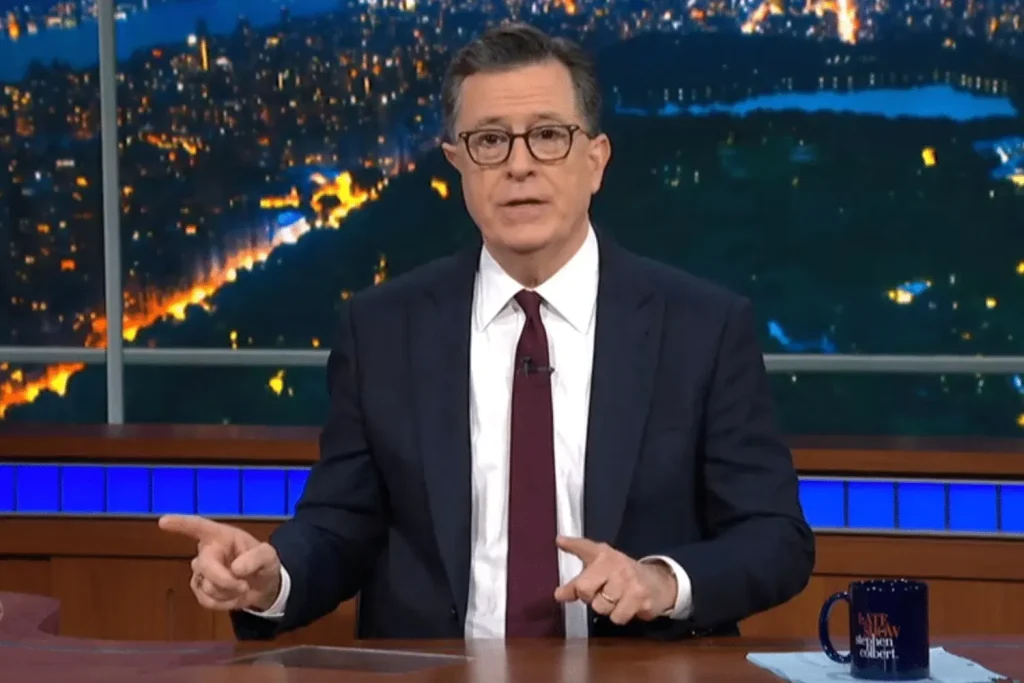The recent cancellation of Stephen Colbert’s “Late Show” has sent shockwaves through the world of late-night television, raising questions about the genre’s future and CBS’s strategic direction. As fans grapple with this unfortunate news, many speculate whether the cancellation was influenced by Colbert’s sharp Trump satire and the ensuing Paramount CBS news controversy surrounding a hefty payout to the former president. Remarkably, CBS executives maintain that the decision is purely financial, distancing themselves from any association with the show’s content or recent events. This dramatic shift hints at an unsettling reality for the late-night television landscape, where beloved shows may be sacrificed at the altar of corporate interests. The explanations surrounding the Colbert show cancellation may hold deeper implications for the direction of comedy in an era of political tension and media manipulation.
The end of Stephen Colbert’s popular talk show marks a significant turning point in the landscape of late-night programming, which has long been characterized by its mix of humor and political commentary. While many viewers mourn this loss, discussions are emerging around the evolving dynamics of late-night content and audience engagement. Recent events have sparked debates on whether the show’s fate was tied to broader corporate strategies or simply a financial necessity as CBS navigates its way through turbulent waters. Additionally, the show’s cancellation raises questions about the balance between entertainment and political discourse, particularly in light of Colbert’s critiques of leadership and governance. As audiences search for new platforms to connect with current events, the future of late-night television remains uncertain, leaving many wondering how such changes will shape the comedic narrative moving forward.
The Implications of Stephen Colbert’s Late Show Cancellation
The cancellation of Stephen Colbert’s “Late Show” signifies more than just the end of a popular television program; it marks a significant moment in the evolution of late night television. As CBS and Paramount pull the plug on an iconic staple that has shaped public discourse and entertainment for nearly a decade, viewers are forced to confront the potential ramifications for the landscape of late night media. The loss of Colbert’s sharp satire, particularly targeting the Trump administration, eliminates a powerful voice that has served as an outlet for political commentary that resonates with the public, especially in an era of misinformation and confusion.
Moreover, Colbert’s departure raises pressing questions about the future of late night television itself. Network executives frequently cite shifting viewer habits and the rise of streaming platforms as indicators of a declining interest in traditional formats. Yet, Colbert’s show demonstrated that there is still a significant audience craving engaging and thought-provoking humor centered on current events. Without his unique blend of wit and insight, the genre risks becoming homogenized, devoid of the critical perspectives necessary for crafting an informed citizenry.
Frequently Asked Questions
What led to the cancellation of Stephen Colbert’s Late Show?
The cancellation of Stephen Colbert’s Late Show has been attributed to financial factors by CBS and Paramount, with executives insisting it was unrelated to the show’s performance, despite speculation that recent controversies involving Colbert’s Trump satire played a role.
Is the cancellation of Stephen Colbert’s Late Show connected to CBS’s relationship with Donald Trump?
There are theories suggesting that the cancellation of Stephen Colbert’s Late Show may be influenced by CBS’s financial dealings with Donald Trump, especially in light of a recent $16 million settlement CBS had to pay, which Colbert openly criticized on his show.
How does Stephen Colbert’s Late Show cancellation impact the future of late night television?
The cancellation of Stephen Colbert’s Late Show raises questions about the future of late night television, as viewers are increasingly turning to alternative forms of entertainment, potentially signaling a shift away from traditional late night formats.
What was Stephen Colbert’s reaction to his Late Show cancellation?
Stephen Colbert addressed the cancellation of his Late Show on-air during his show, expressing gratitude towards his collaborators while acknowledging the audience’s shock at the news.
What will be the last season for Stephen Colbert’s Late Show?
Stephen Colbert announced that the next season will be the last for his Late Show, marking the end of a significant era in late night television.
Are there any controversies surrounding the cancellation of Stephen Colbert’s Late Show?
The cancellation of Stephen Colbert’s Late Show has sparked controversy, particularly regarding potential connections to CBS’s financial entanglements with Donald Trump, which some believe may have influenced the network’s decision.
What does CBS say about the reasons for canceling Stephen Colbert’s Late Show?
CBS insists that the cancellation of Stephen Colbert’s Late Show is strictly a financial decision and not related to the content of the show or the performance of Colbert as a host.
Could Stephen Colbert’s Trump satire have played a role in the show’s cancellation?
While CBS claims the decision to cancel Stephen Colbert’s Late Show was financial, many speculate that Colbert’s ongoing criticism and satire of Donald Trump may have contributed to the network’s decision.
| Key Point | Details |
|---|---|
| Cancellation Reason | CBS claims it was a financial decision, denying any connection to Colbert’s critiques of Trump. |
| Colbert’s Remarks | Colbert humorously criticized Paramount’s settlement with Trump before the cancellation. |
| Corporate Interests | Paramount, CBS’s parent company, may have wanted to appease Trump to secure a deal with Skydance Media. |
| Public Reaction | The studio audience expressed shock during Colbert’s announcement of the show’s end. |
| Late-Night Landscape | Declining interest in traditional late-night shows is seen as a broader trend. |
| Colbert’s Legacy | Colbert’s mix of humor and political commentary was a defining feature of his show. |
Summary
The cancellation of the Stephen Colbert Late Show marks a significant moment in American television. While CBS attributes the decision to financial reasons, speculation about corporate influence and political pressures surrounding Paramount’s dealings with Trump suggests a deeper narrative. Colbert’s unique blend of satire and sincere commentary has captivated audiences, making the show’s end a poignant reflection of the current state of late-night television and its intersection with politics. As viewers grapple with this loss, it signals a potential shift away from a traditional format that has long been a staple in American culture.



